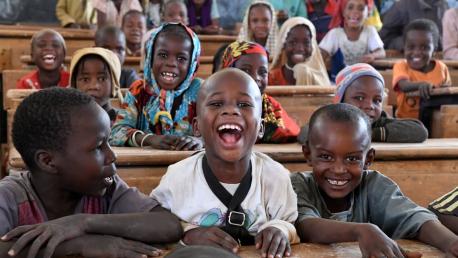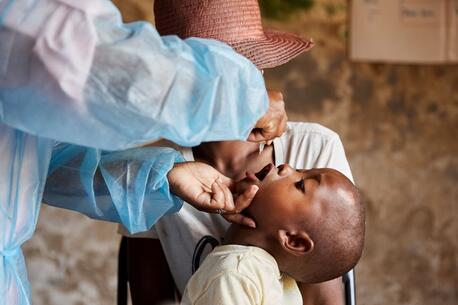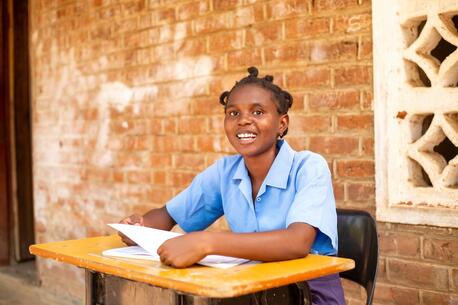
Let Us Learn
Equity in Education
Let Us Learn offers alternative pathways to education for out-of-school children.
When children do not have access to education, the impact lasts a lifetime
Children have a right to a quality education, regardless of gender, background, location or income. However, every day, millions of children face circumstances that make education inaccessible: conflict, natural disasters, health crises, poverty, geographic isolation, social exclusion.
At the start of the coronavirus pandemic, 1.6 billion children were affected by school closures — some for many months. At the one year mark, 168 million children's schools had been closed for nearly a year.
Children who do not receive proper education are at high risk of child marriage, forced labor, violence and difficulties in finding suitable employment and developing a sustainable source of income as adults.
Let Us Learn supports children across the education lifecycle
The UNICEF Let Us Learn program provides out-of-school children with alternative learning pathways, while also strengthening formal education systems for fully enrolled students, paying particular attention to girls and children with disabilities. The initiative supports children into young adulthood through early childhood education, primary and secondary school, as well as vocational training.
Founded by philanthropists Susan Cummings-Findel and Stefan Findel in partnership with UNICEF, Let Us Learn launched in 2011 in Afghanistan, Bangladesh, Liberia, Madagascar and Nepal — five countries UNICEF identified as having outstanding and severe issues of equity in education and high levels of out-of-school children.
Let Us Learn interventions are localized and tailored to each country's — and each community's — specific needs and utilize the following strategies:
Community Based Education: UNICEF mobilizes parents, educators and community leaders to support quality education and transform harmful social practices that keep girls and marginalized children out of school.
Flexible Learning Models: UNICEF promotes multi-education, personalized pathways at the community-level — such as accelerated, supplemental and after-school learning programs — to help students struggling in formal schooling and out-of-school children catch up on learning.
Targeted Interventions: UNICEF’s Let Us Learn strategy prioritizes supporting the hardest-to-reach and most marginalized children, including those with disabilities or with specific cultural or linguistic needs. UNICEF develops and provides resources in different languages, specialized trainings for educators, personalized learning pathways and more.
Holistic Education Frameworks: UNICEF recognizes that there are many factors that impact children’s ability to attend school: distance, cost, safety, facility access/availability and social barriers. UNICEF initiatives — providing scholarships and cash transfers and building sanitation facilities — help lessen the hurdles children face while pursuing an education.
Policy Alignment: UNICEF works to create lasting, sustainable change. By integrating Let Us Learn initiatives and guidance into national and local education systems and policies, quality and accessible learning is prioritized and put on a path to become the norm.
Through Let Us Learn, UNICEF is helping children exercise their right to education so that they can reach their full potential. To date, more than 3.6 million children — more than half of them girls — as well as parents and school staff have benefitted from the program.



